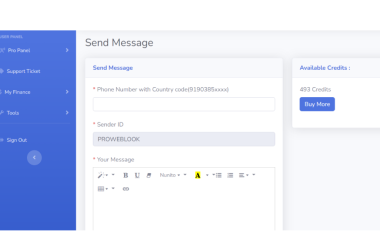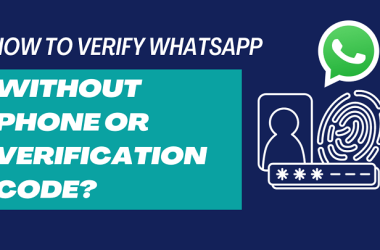Introduction.
“IDN Punycode Converter: Adapting the internet for global communication with multilingual support as its essential feature.” However, the underlying infrastructure of the internet primarily relies on ASCII characters for domain name resolution. This is where the IDN Punycode Converter steps in, bridging the gap between non-ASCII domain names and ASCII-compatible representations. Explore IDN Punycode Converter’s functions, importance, and practical uses for multilingual web accessibility in this comprehensive guide.”
Understanding Internationalized Domain Names (IDNs).
Internationalized Domain Names (IDNs) allow domain names to be represented in non-ASCII characters, catering to languages and scripts beyond the traditional Latin alphabet.
For example, an IDN may represent a website address in Chinese characters, Arabic script, Cyrillic script, or any other Unicode character set.
Introducing Punycode Encoding.
Punycode converts non-ASCII domain names into a format that consists only of ASCII characters, ensuring compatibility with existing internet infrastructure.
Punycode encoding achieves this by representing each non-ASCII character in an IDN with a corresponding ASCII string. These ASCII strings are prefixed with the “xn--” label, followed by a sequence of characters representing the Unicode code points of the original non-ASCII characters.
For example, the IDN “例子.测试” (which means “example.test” in Chinese) would be represented in Punycode as “xn--fsq.测试”.
The Role of IDN Punycode Converter.
The IDN Punycode Converter serves as a tool for converting between IDNs and their corresponding Punycode representations. It allows users to input IDNs containing non-ASCII characters and obtain their ASCII-compatible Punycode equivalents, and vice versa.
Key Features of IDN Punycode Converter.
The IDN Punycode Converter offers several key features that facilitate the conversion process and enhance usability:
1. Bidirectional Conversion: The converter supports bidirectional conversion between IDNs and their Punycode representations, allowing users to convert IDNs to Punycode and Punycode to IDNs seamlessly.
2. Unicode Support: The converter is capable of handling a wide range of Unicode characters, enabling users to convert IDNs containing characters from various scripts and languages.
3. Error Handling: The converter includes error handling mechanisms to detect and notify users of invalid input, such as unsupported characters or improperly formatted domain names.
4. User-Friendly Interface: The converter features a user-friendly interface that simplifies the conversion process, allowing users to input domain names and view their corresponding Punycode representations with ease.
Practical Applications of IDN Punycode Converter.
The IDN Punycode Converter has numerous practical applications across different domains and industries:
1. Domain Name Registration: Domain name registrars use the converter to facilitate the registration of IDNs by converting them into their corresponding Punycode representations before submitting them to domain name registries.
2. Web Development: Web developers utilize the converter to ensure compatibility and consistency when working with IDNs in website development projects. By converting IDNs to Punycode, developers can avoid potential issues related to domain name resolution and compatibility with web servers and DNS systems.
3. Multilingual Content Management: Content management systems (CMS) and website platforms integrate the converter to support multilingual content management and internationalization efforts.
4. Cross-Browser Compatibility: Web browsers implement the converter to ensure cross-browser compatibility when processing IDNs. B
Challenges and Considerations.
While the IDN Punycode Converter offers valuable capabilities for handling IDNs, several challenges and considerations should be taken into account:
1. Character Set Limitations: Users should be aware of these limitations and ensure that their domain names comply with relevant standards and guidelines.
2. Encoding Ambiguity: Punycode encoding may introduce encoding ambiguity for certain characters, leading to potential confusion or misinterpretation. Users should exercise caution when working with domain names that contain characters with similar ASCII representations to avoid unintended consequences.
3. Security Concerns: Domain name conversion processes, including Punycode encoding, may be susceptible to security vulnerabilities such as homograph attacks or spoofing attempts.
4. Standardization and Compliance: Users should verify that the converter follows established guidelines and recommendations from authoritative sources.
Conclusion.
As the internet continues to evolve into a global platform for communication and commerce, the IDN Punycode Converter remains an essential tool for ensuring compatibility, consistency, and inclusivity in domain name resolution and web accessibility efforts.
Visit Proweblook for more Web API tools. More resources can be found on our Github page, Social Channels are Twitter, Facebook & Youtube.








